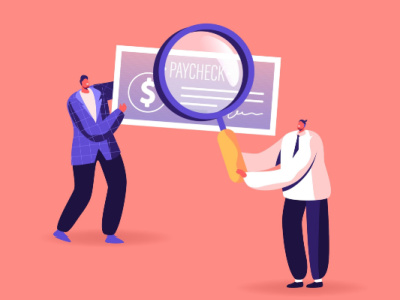Imagine the following scenario: An employer issues a physical check to an employee (or another individual). The employee mobile deposits the check into their bank (Bank A). Then, the employee quickly takes the check to a fast-cash check cashing store and deposits the check again. This is known as double presentment.
Intuitively, one might think that the fast-cash store, being the second to receive the check, is out of luck and will need to recover its money from the shady employee. This is a situation, however, where our intuition leads us astray.
Taking It to the Bank—Twice
In the scenario described above, under Wisconsin law and the Uniform Commercial Code (UCC), the employer’s bank (Bank B) would be required to pay both Bank A and the fast-cash store with funds from the employer’s account linked to the check.
The fast-cash store, although the second to cash the check, would still be considered the “holder in due course” of the check. In short, an entity becomes a holder in due course if it takes a check for value, in good faith, and without notice that the check is fraudulent, or has been claimed by a different holder. If an entity meets those requirements, it is a holder in due course and is entitled to “enforce” the check (be paid) by the issuer.
In our scenario with the shady employee, when the fast-cash store took the check for value (the store cashed the check), it did so in good faith by following its standard procedures and had no notice the check had already been cashed with Bank A. So, it’s a holder in due course and entitled to enforce the check against Bank B (the employer’s bank), which will then deduct the amount out of the employer’s account twice—once for each presentment.
If Bank B refuses to pay the fast-cash store, it could be subject to legal action based on a holder in due course claim. The shady employee could obviously face separate claims and criminal charges, but that isn’t the focus of this article.
Requiring Bank B to pay both Bank A and the fast-cash store with funds from the employer’s account may seem unjust when the fault lies with the employee, but there’s a reason to structure the law this way.
As written, the law encourages the efficiency of financial exchanges. By allowing a holder in due course to seek redress against the issuer, instead of just the shady employee, the law encourages institutions to keep commerce flowing and not obsessively question the authenticity of checks to the point where it detrimentally effects honest entities and people. As shown above, however, the advent of mobile deposits has created real problems for the law as written.
What Can You Do?
Under the law that helped usher in mobile depositing—the Check Clearing for the 21st Century Act—the bank that receives the mobile deposit provides a warranty and indemnifies subsequent handlers of the physical check. So, in our scenario, Bank B’s remedy, after paying both Bank A and the fast-cash store, would be to seek indemnity from Bank A.
By this point it’s likely that the costs of pursuing the double presentment are greater than the amount of the check itself, making further pursuit and potential litigation unattractive to many businesses.
Bottom Line
A cheaper and effective way to prevent double presentment is to ensure checks you issue require the endorser to write or check a box stating the endorsement is for mobile deposit only.
Then, if a shady employee tries to cash the check twice, the fast-cash store won’t cash it. Or if it does, it won’t be considered a holder in due course because it was on notice the check had been previously cashed. If the store isn’t a holder in due course, then the issuer isn’t on the hook to pay twice.
Sterling Knoche is an attorney with Axley Brynelson, LLP. He can be reached at sknoche@axley.com.

